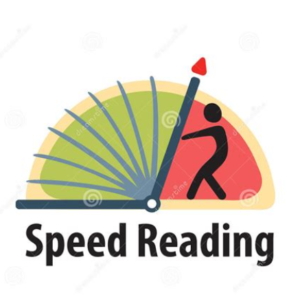Mastering Efficient Reading and Learning: Your Ultimate Guide and Practice Questions for SAT, ACT, TOEFL, IELTS, and More
Efficient Reading Techniques for Standardized Tests
Mastering efficient reading techniques is crucial for excelling in standardized tests such as the SAT, ACT, TOEFL, and IELTS. These tests demand not just understanding but also the ability to manage time effectively. Below, we delve into effective methods like skimming, scanning, and active reading tailored to these exams, along with practical tips and sample practice questions designed to reinforce these strategies.
Skimming and Scanning: These are essential techniques that enable you to quickly find and understand information within a text. Skimming involves reading rapidly to get a general overview of the content. For instance, during the SAT or ACT, quickly skimming passages allows you to grasp the main idea, tone, and structure. Following skimming, scanning becomes pivotal. Scanning involves looking for specific information or keywords in the text. This is particularly useful when answers to questions require locating specific details or data points, a common requirement in TOEFL and IELTS reading sections.
Active Reading: Active reading is a more engaging technique that involves interacting with the text to enhance comprehension. This includes underlining key points, marking unfamiliar words, and jotting down brief summaries or questions in the margins. Employing active reading can significantly improve your understanding and retention of information, which is especially beneficial for long passages found in college entrance exams and TOEFL sections.
Time Management: Efficient reading is closely tied to effective time management. Standardized tests often have tight time constraints, making it essential to allocate your reading and answering time wisely. Practice pacing through timed reading drills and simulate exam conditions to become comfortable reading and responding under pressure.
Note-Taking and Summarizing: Taking concise notes and summarizing paragraphs can significantly boost comprehension. Practice summarizing each paragraph in a sentence or two. This technique can help clarify the main ideas and support understanding, serving as a quick reference when answering related questions.
To reinforce these techniques, practice with sample questions from each test type. For instance, try skimming for the main idea in an SAT passage, scan for specific details in an ACT science text, and actively read and summarize paragraphs in TOEFL and IELTS excerpts. Constant practice will help you internalize these efficient reading techniques, making them second nature during the actual exam.
Effective Learning Strategies for Exam Preparation
When it comes to preparing for critical exams such as the SAT, ACT, TOEFL, IELTS, and other entrance tests, implementing effective learning strategies is essential. First and foremost, goal setting is paramount. Defining clear, achievable objectives provides direction and motivation throughout the study period. Creating structured study plans that break down the syllabus into manageable sections ensures consistent progress and helps avoid last-minute cramming.
Engaging in active learning methods significantly enhances retention and understanding of complex concepts. Techniques such as self-quizzing allow students to actively recall information, thereby reinforcing their memory. Flashcards are particularly beneficial for subjects requiring memorization of terms and formulas. Mind mapping, on the other hand, provides a visual representation of information, connecting different ideas and facilitating a deeper comprehension.
Regular review sessions are crucial as they help reinforce knowledge and identify areas that need improvement. Revisiting material periodically rather than in a single sitting prevents forgetting and strengthens long-term retention. Leveraging resources such as study groups can also be immensely beneficial. Collaborative learning not only provides diverse perspectives but also enables peer support and motivation. Online platforms offer a plethora of resources, including practice tests, video tutorials, and interactive exercises, which can be tailored to individual learning styles and needs.
For optimal preparation, utilizing high-quality books and reference materials is recommended. Some of the best resources for college students include “The Official SAT Study Guide” by the College Board, “The ACT Prep Guide” by ACT, Inc., and “Official TOEFL iBT Tests” by ETS. Additionally, “The Complete Guide to the IELTS” by Bruce Rogers, “Barron’s GRE” by Sharon Weiner Green, and “Mastering Modern Chinese History” by Jonathan Spence for Chinese entrance exams are noteworthy. These materials provide comprehensive content coverage, practice questions, and essential test-taking strategies.
Incorporating these effective learning strategies into your exam preparation plan can significantly enhance your ability to retain information, manage your study time efficiently, and ultimately perform at your best on test day.


Post Comment